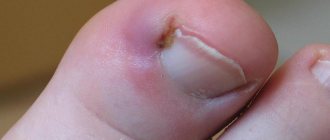The proverb “You can’t carry your own burden” is perceived quite differently by parents of small children who want to be held in their arms all the time, and attempts to prevent this cause indignation and tears. It is quite normal for adults to feel confused: the feeling of love and pity for a suffering child struggles with the responsibility for teaching the little person to be independent, the fear of being spoiled or becoming an object of unconscious child manipulation.
What do mother's hands mean to a child?
During nine months of being in the mother’s womb, the baby gets used to the tightness of the uterus, the beating of a woman’s heart, uniform rocking, a certain body temperature, and smell.
Such conditions provide comfort and safety. But one day everything changes. A newborn finds himself in a completely unfamiliar and incomprehensible world to which he needs to adapt. And this must be done with the help of maternal love and tenderness.
Experts call the first 3 months the “fourth trimester.” Such a comparison is quite appropriate, since the child, although no longer connected to the mother by the umbilical cord, is completely dependent on her physically and emotionally.
The proximity of the mother's body calms the baby and gives him a feeling of reliability. It is mother’s hugs and her care that lead to the emergence of the so-called basic trust in the world around us, which then transforms into openness to everything new and a desire to explore space.
In addition, being in the mother's arms has a beneficial effect on the physical development of the child.
- carrying in the arms, breastfeeding provides close bodily contact, which allows you to actively stimulate the development of the cerebral cortex;
- Also, mother’s touch helps stimulate blood circulation, improve the endocrine and nervous systems, and develop immunity;
- if you carry a child in your arms correctly, you can contribute to the optimal formation of the musculoskeletal system, spinal column and hip joints in children;
- the baby, being held in his arms, takes part in the mother’s activities, carefully observes her manipulations, which allows him to receive a large amount of information and develop intellectually.
Most often, at the age of six months, when the child begins to crawl, begins to actively explore the world around him, gradually becomes more independent, and the time spent in the mother’s embrace is significantly reduced.
Carry the baby in your arms. Helpful or Harmful?
Previously, it was a common belief that the less you carry a child in your arms, the better. The baby’s desire to “be held” was considered a sign of being spoiled. The results of numerous studies have proven the opposite.
Let's talk about the harm, or rather myths about harm, and the benefits of carrying a baby in your arms.
- The child becomes addicted. Psychologists believe that attachment to mom creates a sense of security if she responds quickly. The more often a mother approaches a baby under the age of one year and establishes contact with him, the more trust a person will have in adulthood.
— Subsequently it is difficult to wean off. The need for mother's love in a baby is as natural as the feeling of hunger. To understand the process, you can simulate the situation and imagine that the person wanted to eat. He prepared lunch for himself, but then a “wise” adviser comes up and claims that the feeling of hunger should accompany a person all his life and with these words he takes the food. How does a hungry person feel? The baby will react in approximately the same way - he simply will not understand why the mother did not come and caress him.
- The child will always ask to be held. Drawing on the above analogy, we can safely ask the question: “Doesn’t a feeling of fullness arise when eating?” It’s the same with the baby: he will take as much affection and positive emotions from his mother as he needs. No more, no less. However, a lack of care and attention on the part of the mother will subsequently result in serious problems that can only be solved with the help of a psychologist.
- There will be no time left for chores around the house. Trying to do a hundred things in one day is a recipe for burnout. You can organize your time wisely; you will have enough energy for both the baby and household chores. Don't have time? You just shouldn’t jump above your own head and prove something to others.
— The child will have a curvature of the spine, and the mother will have back problems. According to pediatricians, ordinary lying in a playpen has a much more detrimental effect on the development of the baby. Muscle and bone corsets will form quickly and correctly if the baby is carried in your arms. This is the main load on the spine during the first months of life. Mom is also unlikely to get severe problems with her spine, because the baby is gaining weight gradually, and mom’s back will get used to it.
How do children, whom their mothers carry a lot in their arms, differ from their peers who are deprived of this? What are the advantages?
• They are ahead of other children in terms of neuropsychic development. Touch is one of the most important stimuli for the development of the central nervous system. Signals from skin receptors enter various centers of the cerebral cortex, contributing to their intensive formation.
• “Tame” children, as a rule, quickly establish visual and auditory contact with their mother, they understand other people’s speech earlier and are more successful in “producing” their own. In addition, they demonstrate a richness of emotions. Being close to their mother, they constantly see manifestations of her feelings (smile, surprise, joy) and in response they quickly learn to express their feelings: they respond with a smile to a smile, make sounds, and make energetic movements with their arms and legs.
• They are calmer. Touch relieves stress. Tame children have lower levels of the stress hormone cortisol. Mother's hugs not only calm the baby, but also relieve pain due to the production of endorphins. Therefore, many women instinctively hold their baby close when he cries - and the baby quickly calms down.
• They feel better. It has been noted that children whose mother constantly strokes and hugs have less stomach pain and suffer less from colic. This is due to the fact that touching releases the hormone inulin, which activates the intestinal tract. The higher the content of this hormone, the more efficiently the baby digests food. In addition, mother’s warmth warms the baby’s tummy, relieving pain.
• They become more actively aware of the world around them. When held in their mother's arms, babies interact better with the external environment. While awake, when the child is in a calm state next to his mother and does not waste his energy on crying, he better looks and listens to the objects around him. From this height, the baby can see what is inaccessible to his perception when he lies in the crib. If the mother leads an active lifestyle and regularly carries the child, he begins to feel like a participant in the process, and not just an observer. Such children subsequently grow up mobile, proactive and show more interest in life.
• They form close contact with their mother. Constant closeness with the mother forms in the child a feeling of complete trust in her, and a close relationship is established between them. A woman who carries her baby in her arms better perceives his desires, understands his needs and satisfies them in a timely manner.
“Of course, everything needs moderation, and carrying a child in your arms around the clock is not the best option. As elsewhere, in motherhood moderation, as a rule, gives better results than fanaticism. The baby needs a mother, but at some point you need to learn to cope without her, and therefore you must definitely give him time to be alone, leaving him lying in a crib or playpen.”
Until what age can you pick up a baby without any harm at his first call or cry? At least from the birth of the baby until the moment he begins to crawl (6–7 months). From now on, the child wants to learn everything on his own, the space of the surrounding world expands for him, and he spends less time in his mother’s arms. The duration of the “manual period” is individual for each baby and is directly related to the baby’s temperament, his character traits and his state of health.
Experience shows that when a child grows up, the craving for independent research overpowers the desire to be in the mother's arms. He will want to explore the world himself, first crawling, then running and exploring everything around him. The need for physical contact with parents weakens with age, although, of course, the baby needs maternal hugs at three and four years old and beyond.
The need for love is one of the basic human needs. The easiest way to express support and love to your family is to hug them and hold your child in your arms.
We wish you love and happy motherhood! The article was prepared by the psychologist of the Road to Home Charitable Foundation, Lyudmila Evgenievna Belousova.
How is excessive attachment formed?
So, frequent exposure to mother's arms contributes to the better development of the baby, the formation of a sense of security and self-confidence. However, at the same time, a habit of mother’s hands may arise if certain conditions are not met:
- Some parents strive to satisfy every need of their newborn, responding to literally every squeak. If you constantly hold your baby in your arms when he is awake, you can inadvertently form a painful dependence.
- Up to four months of age, children often suffer from intestinal colic, accompanied by pain. One way to alleviate the condition is to carry it in your arms and apply it to the mother’s tummy. Such help often develops into the habit of being in mother’s arms.
- A habit can also develop during a child’s painful condition. If he has a fever, coughs, or feels unwell due to teething, then the solution is motion sickness in his mother’s arms.
The tame child is gradually growing up, the difficulties of the first months of life go away, but the dependence on motion sickness and mother’s hugs remains and only gets stronger. The baby is accustomed to this state of affairs and does not at all want to give up being in his mother’s arms. What to do in this case?
Overcome - or reconcile and be comforted
Let's take a closer look at this mechanism. There are situations in life when something does not go the way we want. We fail at something, we lose something important, our need is not met, or we are afraid that this will happen in the future.
The simplest case: a child sees something beautiful and shiny on a shelf and wants to get it. And it doesn't reach. Too high. There is an obstacle to satisfying the need - frustration . I really want it, but I can’t take it.
The first reaction to frustration is to mobilize and overcome the barrier that stands in the way. The baby tries again and again, stands on tiptoes, stretches with all his might. But no way. Then he looks around and drags a chair to the shelf - puffing, trying. He is all collected, directed, mobilized to overcome the obstacle.
If the chair does not help, all is not lost, you can call adults and ask them to give this thing, so desired and necessary. They don’t give it right away - try harder, ask more persistently.
That is, first plan A is activated - overcome, try, give your best . To do this, stress hormones are released in the body, they increase metabolism, force you to act and think faster, and help you do your best in the fight against obstacles. And in most cases it ends in success - got it, got it, got it - cheers, victory, triumph, stress is replaced by joy.
But it happens that the barrier is not given. He climbed onto a chair and fell and hit himself. I reached out and still couldn’t reach it. I asked an adult to give me this thing, but he couldn’t give it to me, that’s it. Stress hormones are already in the blood, mobilization has begun - but the victory has failed. What to do here?
Move to plan B. Accept defeat , at least for now. Accept the situation, survive the frustration and find comfort. That is, move from mobilization to demobilization, get out of the state of stress in the other direction - not in the direction of joy and triumph, but in the direction of sadness and humility.
Tears are a good helper here (psychologist Gordon Neufeld poetically calls them “tears of futility”). Crying relaxes, gives you the opportunity to “vent” your feelings, and in the literal sense: with tears, the breakdown products of stress hormones are released - by the way, quite poisonous in large quantities.
When faced with frustration, it is important to be able to both pull yourself together and break through, and to resign yourself and relax. As the ancient prayer says, “God, give me the strength to change the things I cannot accept and accept the things I cannot change.” Most often, a child acts this way: he first tries plan A - to break through, and if it doesn’t work out, then plan B - to cry and resign himself.
Significant reasons for weaning
Before thinking about the question of how to wean an infant from holding hands, you should understand whether it is even worth doing this at this particular age. As we have already said, you should wait for a certain period when the baby is ready to wean.
However, there are situations when refusal of physical contact is due to a number of completely objective factors:
- The new mother is too tired from household chores. In such a situation, you should talk to your spouse or grandparents, who can take over some of the responsibilities. If this cannot be implemented in practice, then the presence of the baby in your arms should be limited. He needs a rested mother.
- Another significant reason is the mother’s forced return to work before the end of her maternity leave. In this case, the mother must be replaced by grandmothers and nannies. And parents will compensate their love for the baby in their free time.
- Some mothers worry too much about their children, preferring to hold them in their arms rather than let them on the floor or in the sandbox. In such a situation, you should start working not with the child, but with the mother, since her anxiety is transmitted to the baby.
- A child who is already able to crawl or, moreover, walk, must independently explore the world, of course, under parental supervision. Therefore, you should let the grown-up baby off your hands and send him off to “conquer” the surrounding space.
Some mothers are sure that even a newborn baby should not be held. This is not an entirely correct position, since the baby that is born needs physical contact with its mother. Everything should be in moderation, so don’t forget to kiss, stroke and lift the baby into your arms.
Adviсe
- Be prepared for the process to be lengthy. Therefore, it is extremely important to be patient.
- It is unacceptable to scold or punish a toddler for asking to be held.
- It is important that there is a quiet, calm atmosphere in the family, and that there are no quarrels or scandals.
- It is unacceptable to abruptly refuse to hold hands with a child. Such a phenomenon will be perceived as punishment for some kind of offense. It can even be traumatic. Parents need to be consistent and act gently.
- When you are not picking up your little one, continue to surround him with your presence, tell him stories, sing songs.
Now you know what to do if your child constantly asks to be held. The main thing is to understand that the weaning process is necessary for both you and the baby. With such actions we push the little one towards independence and deprive ourselves of excessive stress on the spine. Remember that you need to wean off your hands at the right time; you shouldn’t resort to this process too early, but you don’t need to delay it either.
How to wean your child off your hands?
To wean infants and older children from parental hands, it is necessary to take into account the child’s age. Following the recommendations and advice of specialists will allow the mother to rest or do homework.
From 0 to 3 months
The question of how to wean a newborn from holding hands is incorrect, since, as already noted, during this period he is connected with his mother physically and emotionally. It is only important not to turn a natural need into a habit.
- at 1 month, a baby fed and dressed in a dry diaper is able to spend some time without his mother, for example, listening to calm music. If the baby starts to cry, you don’t need to immediately grab him in your arms. Sometimes shaking a rattle is enough to calm him down;
- At 2 months, the time for active exploration of the world increases compared to the age of 1 month, so it is not at all necessary to constantly hold the baby in your arms. You can simply lay your child next to you on the bed, stroke his back and stomach, and give him a massage. That is, it is important to continue to maintain tactile interaction;
- at 3 months, the main recommendations remain the same: tactile interaction and regular massage. At this age, the child already begins to actively play with rattles and monitor the rotation of the mobile. These toys will distract your baby when he is upset or overly excited.
Experts advise observing moderation when carrying on your hands. You need to lift the baby when he himself “asks” for it. However, you should not wait until the moment when a child’s appeal develops into a hysterical attack. A timely parental reaction will ensure the correct development of the child and the formation of trust in the world.
4 to 6 months
It is, of course, important for a 4-month-old child to be close to his mother, but the constant desire to be held in his arms gradually disappears. In addition, now he can follow his mother with his eyes, which is sometimes enough to feel safe.
A 4-month-old baby loves to play, so you can distract his attention with simple entertainment:
- If a child lying in bed cries and demands to be picked up, the mother can calm the baby down with the help of the game “Peek-a-boo.” The parent hides behind the crib, then appears and cheerfully says “Ku-ku.” Usually the baby instantly gets involved in the fun and starts smiling;
- At 4 months, the baby's favorite toys are rattles and mobiles. Noisy devices perfectly develop motor skills and coordination of movements, and the mobile helps improve visual perception. In addition, they perfectly distract the baby from the desire to be in his mother’s arms.
Even at 4 months, it is important for a child to understand that his mother is nearby and he is completely safe. Therefore, it is not necessary to take the baby in your arms, but you need to stroke him, kiss him and talk to him constantly.
At 6 months
At the age of six months, the child is no longer tormented by colic, which was so annoying at 3 and 4 months. However, now the baby is worried about teething. The baby may cry due to pain, but usually mothers already understand when tears are caused by an objective reason, and when a child’s roar is just manipulation. In the latter case, practical advice from experts will help:
- In order not to carry a heavy bottle in your arms, it’s better for mom to lie down next to her and sing a song. This will allow the baby to feel the presence of any person;
- purchase a special educational mat that will captivate a child who loves to play for a long time. Various rattles, pendants, cubes, mirrors - all this attracts little researchers;
- Six-month-old babies can already sit and crawl. You can try crawling together, after covering the floor with a soft blanket.
Under no circumstances should you leave your child alone on a bed, sofa or on a play mat. A baby exploring the world can crawl anywhere. You can ensure your baby's safety by placing him in a playpen.
At 7 - 8 months
Many experts recommend weaning the baby from holding hands during this period if he still constantly uses his mother as a rocking chair and carrier. However, it is necessary to act consistently and extremely carefully so as not to injure the baby.
Take it with you when preparing lunch. Naturally, the child needs to be protected from the many dangers that await him in the kitchen. For example, you can put your baby in a high chair or in a playpen filled with toys. During the cooking process, they talk with the little “companion”, talking about cooking.
From 1 year
The first anniversary usually marks the child's relative independence. And most often it is possible to wean him off his hands much earlier, but sometimes it happens that the baby continues to ask to be held, and the mother is forced to constantly rock the well-fed baby.
To wean a child from the habit, you need to distract him with the help of various gaming devices: a children's piano, a typewriter, a tolokar, cubes and other toys. The most important thing is to remember that a baby even at two years old is not able to play alone for a long time, so you need to be close to him during the game.
Useful psychological techniques will help you cope with the habit:
- try to distract your child with a bright toy every time he starts reaching out to you;
- there is no need to lift the baby at first request. It’s better to sit down next to you, hug, talk, pat you on the head - that is, realize the need for physical contact;
- try to involve other household members in the educational process. But it is important to explain to them that they should not lift the child every time he cries;
- If a child falls or bumps, you need to sympathize with him, taking him not in your arms, but on your knees. Mom's hugs are sometimes the best medicine.
The second year of life is the time when babies try to manipulate adults to get their way. Therefore, it is important to distinguish when a child really needs your help and support, and when the problem can be solved with “little loss.”
Why does the baby insistently ask to be held?
- A common reason is lack of love. Psychologists say: for a child under three years old, being in the arms of an adult means feeling love and protection.
- The child quickly misses his loved ones and physically needs their hugs. A few days of mother’s absence can frighten him so much that she will be provided with tight “control” for a long time. Therefore, pediatricians recommend establishing communication with peers as early as possible, and starting attending kindergarten at the age of three.
- The reason may be malaise, teething or fear: even a child who can speak finds it difficult to express anxiety from a passing car or dog nearby. Where can you find a safer place than in the arms of mom or dad? And there is a better overview: of objects, of the mother’s facial expressions, and of the eyes of those around her.
- The baby asks to be held because he lacks warmth and protection. In some children this is less pronounced, in others it is stronger. It is important to satisfy this need on time. Adults who experienced feelings of loneliness and abandonment in early childhood are more likely to experience self-doubt. And schoolchildren whose need for love is satisfied in infancy communicate better with peers and study more successfully.
Unfortunately, many adults lack the patience and desire to put the child’s emotional comfort first, and real communication with children is replaced by gifts and “providing everything necessary.” Although communication and sincere expression of love are no less necessary than material wealth, especially at an early age.
When should you not wean your hands?
Most often, tactile interaction with a child is reduced when he is 7–8 months old. At this age, he is already independent: he crawls, sits, and eats complementary foods.
However, the child does not always voluntarily agree with such a decision. In this case, you don’t need to insist too much to avoid stress or psychological trauma. Some children refuse their mother's hands only after one year of age.
Rush is not recommended in cases where the child:
- developmentally delayed;
- suffered trauma during childbirth;
- weak or premature.
If you can’t wean yourself off your hands or you decide to temporarily abandon this idea, use a kangaroo carrier, which can be used from birth to one year of age. However, for a newborn you will have to select a special insert, since holding it vertically is strictly not recommended.
To move a newborn, it is better to use a special sling: a May-sling, a carrier with rings or a scarf carrier. They all represent a kind of pocket, which is formed by wrapping a piece of fabric around the mother’s body.
These types of slings allow very young children to lie in a horizontal position on their mother’s stomach. But six-month-old babies can already be placed vertically and behind the parent’s back.
In addition, you should think about why the child throws tantrums when weaned from his mother’s arms. It is likely that the baby sees constant family scandals or feels some detachment from the mother. Remember that until the age of 7 months, you should refrain from weaning children from parental hugs.
When you shouldn't deprive yourself of your mother's hands
You have decided to wean your baby off your hands, you are prepared for the fact that the process may take longer, but you are confident in your desire and do not want to give in to the child’s desire to be held. However, situations are possible in which it is necessary to abandon your strong belief and slow down the unlearning process:
- was injured during childbirth;
- lags behind in development.
- The little one is teething, he feels severe discomfort, his temperature has risen;
- The baby has colic and a severe tummy ache;
- the child is sick - he urgently needs maternal care;
- Your baby was born premature - it is better to delay the weaning process;
- the whole family went on a trip or changed their place of residence - the baby found himself in a new, unfamiliar environment, this is already stressful for him, and now, more than ever, he needs the feeling of his mother’s closeness, a sense of security.
How to wean your baby from sleeping in your arms?
If a mother wanders around the room all night with a child in her arms who does not want to sleep in the crib, something needs to be done as quickly as possible. Usually, a six-month-old child is able to sleep almost the entire night without waking up.
Popular TV doctor Komarovsky is convinced that if a child falls asleep exclusively in his arms, the parents are to blame for organizing the daytime routine incorrectly. Once you establish a routine, the problem usually goes away on its own.
How to wean your baby off your hands at night? You should follow some recommendations from experts:
- It is better not to put the child to bed during the day for a while or significantly reduce afternoon naps. Naturally, during this period it is necessary to keep the baby busy with something, while at the same time making sure that he does not get overexcited.
- Instead of rocking and holding, you can try reading fairy tales or singing lullabies. In this case, it is necessary to stroke the baby in order to compensate for the bodily contact to which he is already accustomed.
- Place a soft toy next to the baby in the crib. A plush bunny will brighten up your sleep and help you avoid nightmares and fears.
- Even if you think that your child is too nervous, you do not need to give him sedatives. It is impossible to predict the baby’s reaction to any sedative, including valerian.
If you are unable to put your child to sleep without motion sickness, or have other symptoms of excessive excitement, contact your pediatrician. You may need to undergo examination and subsequent treatment.
When to start
It is harmful to wean your baby off your hands before 6-8 months. It is important for the baby to feel the mother's presence. If you strictly refuse him this, then the stress he experiences can affect the nervous system that has not yet been established. Being in the mother's arms, feeling her presence and protection is a psychological need of a newborn. If she is not satisfied, the baby will be restless and unbalanced.
If your baby is still small, but you need your hands free to do your own thing, try using a sling. This way, the newborn will be with you all the time, feeling the mother’s warmth and exploring the world around him with interest. Try shifting some of the household responsibilities to loved ones or rescheduling their implementation to a time when dad can be with the baby.
If your child is over a year old, he walks confidently, but does not get off your hands, you should take care of teaching him to be independent. The weight of children by this period of life is already quite significant, and carrying such heavy weights can have a detrimental effect on the back of a young mother.
Brief summary
So, let’s summarize our conversation by stating the main points:
- a newborn baby vitally needs a mother’s embrace;
- the habit of being held is formed in the first months of life if the baby is sick or the mother feels increased anxiety;
- dependence does not mean that the mother needs to abandon everything to carry the baby in her arms throughout the day;
- the optimal age for starting weaning is 7 - 8 months, but you should still focus on the child himself, his individual characteristics;
- The duration of weaning and the result itself will depend on the character of the baby, the strength of his habit and the mother’s perseverance.
If you are trying to wean your child off the pen, then you should choose methods that will allow you to rid your baby of the habit as painlessly and without any problems. The most important thing is to remember that babies grow very quickly, so perhaps very soon you will nostalgically remember children’s hugs and the child’s desire to be close to you.
Summary
- Use auxiliary devices: slings, pendulum crib, chaise lounge, rug and more.
- Don't forget about frequent tactile contact: massage, softening the back and tummy, rocking on your knees.
- Use fairy tale therapy.
- It should be weaned no earlier than 6-7 months.
- The period of study depends on the mother’s persistence and the individual characteristics of the child.
- If a child is often capricious for no reason, or is often tormented by painful sensations, stop this idea for a while
- It is very important for a child to be in his mother’s arms. This is how a confident personality is formed.
Children grow very quickly and one day you will remember with warmth how the baby needed your hands and hugs. Let the baby feel your care!
[media=
https://youtu.be/2t6Ya0sbY0c
]
Consequences of being constantly held
First of all, because the mother constantly carries the baby in her arms, often making rocking movements, pain appears in the back and knees. As the child grows, the load on the hands increases; fragile girls note prolonged pain in the muscles of the forearm.
How to wean your baby off breastfeeding at night
In addition to obvious physical fatigue, the mother does not have the opportunity to take a bath or shower, take care of her appearance, and it is very difficult for her to do things in the kitchen when she has to hold the baby with one hand all the time.
A child, being in his mother's arms, loses the opportunity to develop physically. When other children are in the crib, they:
- study their body by looking at their hands;
- train to roll over by raising your legs up;
- try to reach for toys;
- get acquainted with the operation of a mobile suspended above the crib.
A baby who does not get off his hands spends a large amount of time in one position. He is deprived of the opportunity to learn to roll over and lags behind his peers in physical development.
Important! The main danger of constant carrying is that the mother comes into the kitchen to put something on the stove to cook, stir or cut. The child at this moment is exposed to terrible danger. Pediatricians urge young mothers not to take their children into the kitchen. It is better to leave the baby screaming in the crib than to treat him for burns later.
Advice from Dr. Komarovsky
Pediatrician Komarovsky, who enjoys authority among mothers, recommends from the very beginning to avoid a situation where the child is chained to the mother’s arms around the clock. He encourages parents to learn to recognize the reasons for crying so that they don't unnecessarily pick up their children. Before removing the baby from the crib, you need to determine why he cried:
- how long ago he ate - if two hours have not passed yet, it means he is not hungry;
- what is the temperature in the room - if it is above 22˚C, the child is hot, especially when he is wearing two layers of clothes and a cap;
- did he drink after eating (we are talking about children over 6 months old who eat porridge or vegetable purees);
- whether his stomach hurts, this can be determined by a special piercing cry, twisting his legs and passing gas;
- is he frozen? - this point, according to the doctor, is from the realm of fantasy, because children are regularly overheated and never overcooled, but it is worth keeping this in mind by checking that the room temperature is not lower than +16˚C, and the baby is at least dressed in 1 layer of clothing.
Having analyzed the situation on all points, you can understand whether the child is capricious or requires help. The further actions of the parents depend on this: they will decide whether to pick him up or pat him on the back or tummy, and then go about their business.
There are three rules for weaning:
- If you decide to wean, you must never go against your decision;
- If a mother does not pick up a capricious child, then neither will all family members;
- Even at night, the newborn may be taken out of bed only for feeding, after which he is sent back until the next meal.
A happy family
Having suffered only 2-3 days, parents will be able to provide themselves with restful sleep, free time and strong nerves. With the right approach to raising your child, there will be no fears about the appearance of a second baby in the family. Motherhood can be happy only if parents have common sense.










